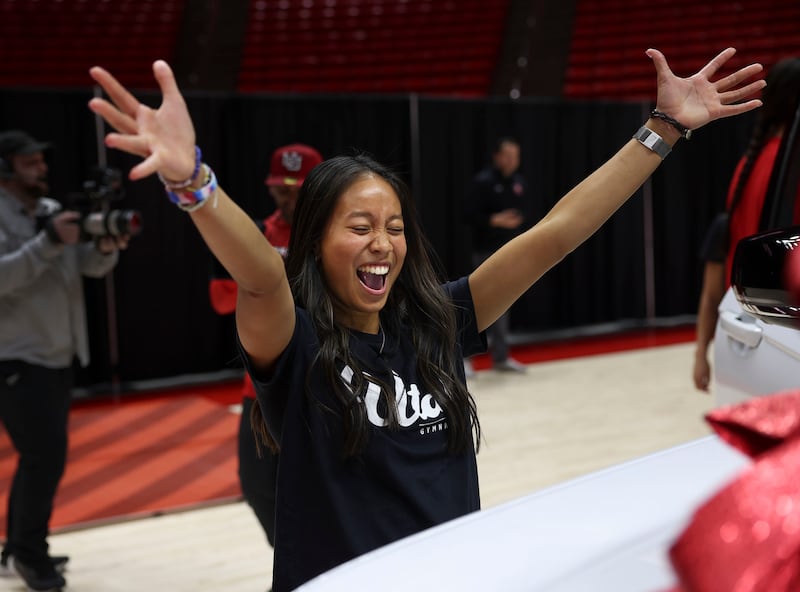- The Utah House passed a bill allowing universities to directly pay college athletes.
- Schools in Utah could pay athletes regardless of the outcome of a pending court case.
- There are questions about how Title IX applies to direct athlete compensation.
Utah lawmakers moved a step closer to allowing universities to directly pay athletes, regardless of whether a court approves a proposed revenue sharing plan in college sports.
The House approved HB449 this week 61-4 with no debate. It now goes to the Senate.
Rep. Jordan Teuscher, R-South Jordan, said the bill aims to keep state law consistent with the direction of name, image and likeness compensation in college athletics and ensure Utah universities are not at a disadvantage.
“The landscape is quickly shifting around the country of what is allowed, what’s not allowed, what the NCAA is doing, what court cases are doing,” he said.
The legislation has the support of universities in the state, Teuscher said.
Last year, a judge preliminarily approved a settlement in House v. NCCA that would create a revenue sharing model in college sports. If the agreement goes through in April, universities could earmark as much as $20.5 million to directly pay athletes starting in July. Most Power Four schools are expected to spend $15 to $17 million on their football rosters.
“There is some question as to whether or not the settlement will be approved, but regardless of whether that settlement is approved, most universities across the country are looking at direct compensation to athletes,” Teuscher said.
What the NIL bill does
- HB449 would allow universities to directly pay college athletes for the use of their NIL.
- It prohibits the use of state appropriations, tuition or fees to pay athletes.
- It requires an audit every five years of how schools spend the money starting in 2028.
- The bill removes a requirement approved last year that athletes submit NIL contracts over $600 in value to their schools for review.
- The proposed law states that college athletes are not university employees.
The original version of the bill made direct payments public records subject to Utah’s Government Records Access and Management Act but Teuscher removed that provision.
Salt Lake City media attorney Jeff Hunt said earlier that payments made by public universities to student-athletes should be treated like any other disbursements made by the institution, including being subject to open records laws.
“Without transparency, the public will have no idea how this money is being spent or whether universities are providing female student-athletes equitable participation opportunities as required under Title IX,” he said.
Would Title IX apply to revenue sharing?
Rep. Karen Peterson, R-Clinton, was among four lawmakers who voted against the legislation.
In a committee hearing earlier in the month, she said she doesn’t understand how direct payments would comport with Title IX, the law that requires schools to provide equal athletic opportunity, regardless of sex.
“Now that we’re talking about direct payments from a university, I guess I don’t have my head wrapped around how that works with Title IX in ensuring there’s equitable opportunities for student-athletes,” she said.
In January, just before President Joe Biden left office, the U.S. Department of Education issued a memo defining NIL payments as financial aid that must be proportionate between male and female college athletes.
The Trump administration rescinded the guidance, saying it lacks legal authority.


